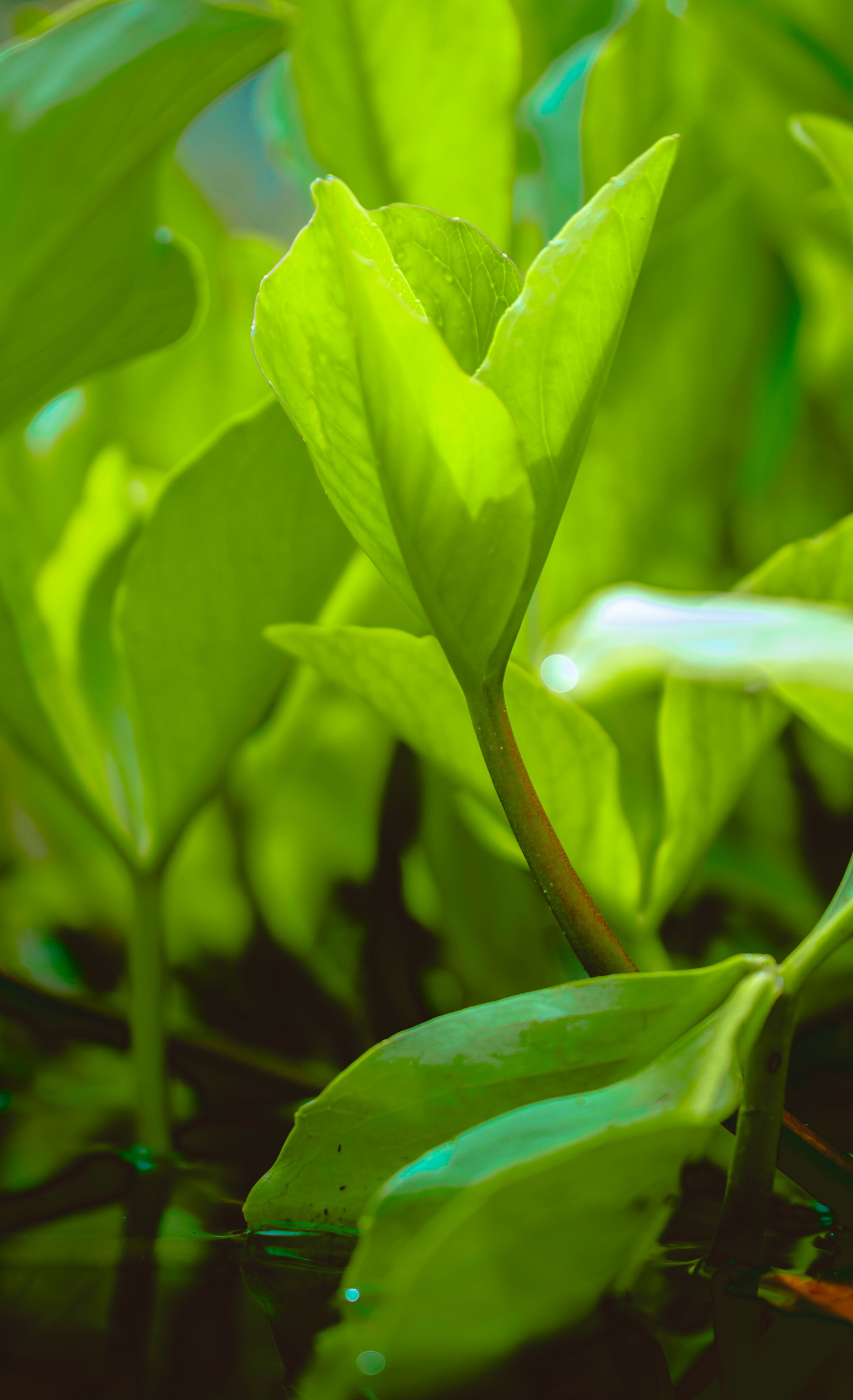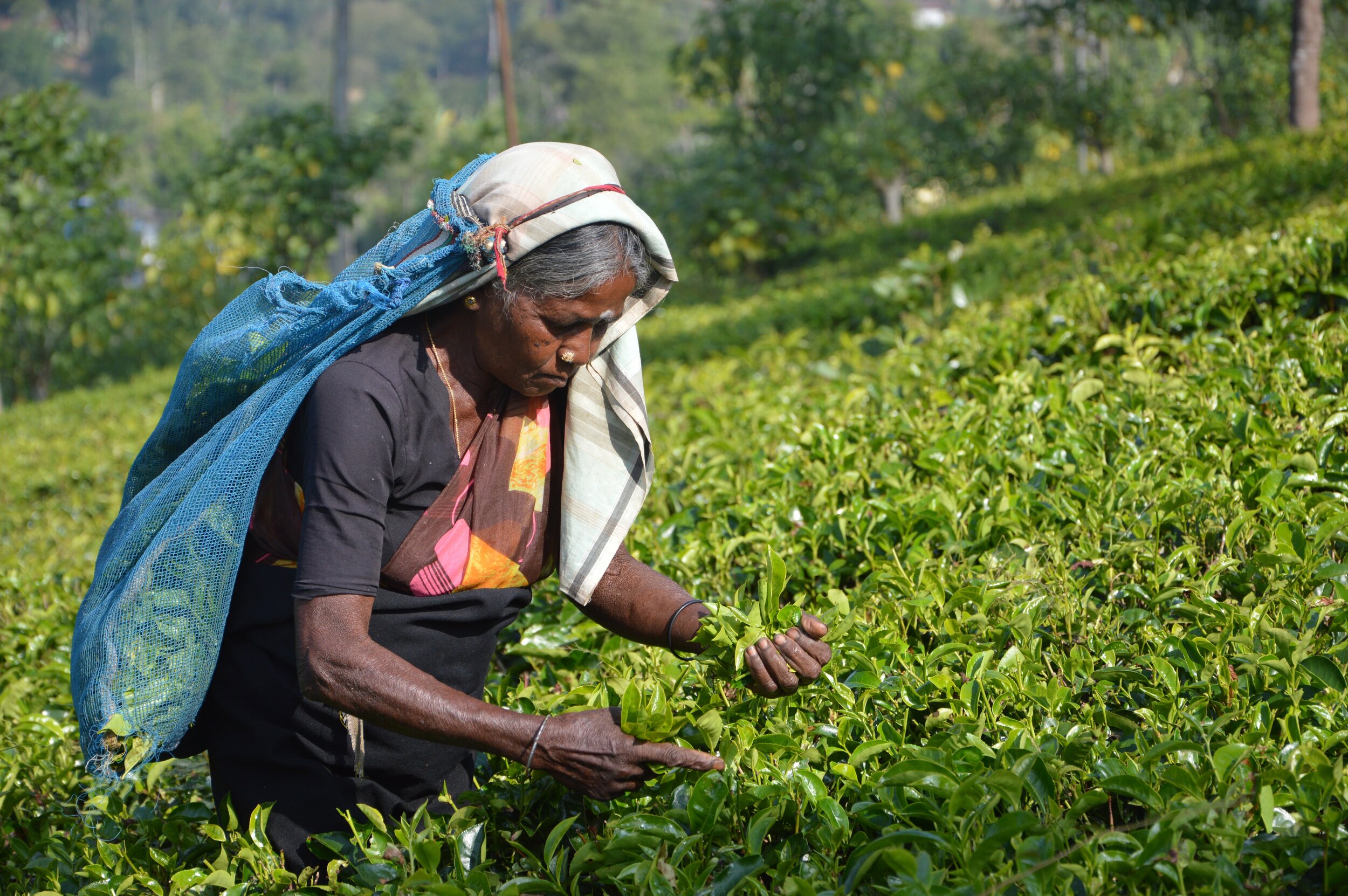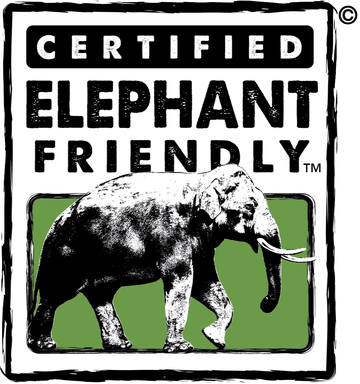Do you know what elephant friendly tea is? Some weeks ago I came across an article that immediately caught my attention: India’s first elephant-friendly tea garden. As someone who has spent a lot of time advocating for Asian elephants, it was interesting to learn about one of the crops that is the cause of human-wildlife conflict in one of the most prominent elephant habitats in the world. It is believed that 60% of Asia’s elephants live in India. Additionally, India is the world’s second tea producer and consumer. As elephants’ habitats shrink, they start to wander around tea plantations in search of food. I made the connection.
According to the United Nations Food and Agriculture Organization: “Tea is the world’s most consumed drink, after water.” Most of the tea grown in the world comes from China, followed by India, where the annual production amounts 1.3 million tons of tea. Interestingly, 70% of that tea is consumed by India itself.* If we take into account that India’s population is estimated to be currently 1.3 billion, that’s a lot of tea!
In this article I will talk about elephant-friendly tea; its origins; the impact that cultivating tea has on the environment and the solutions found by a visionary farmer.
What is Elephant-Friendly Tea?
It all started with Mr. Tenzing Bodosa, a first-generation tea grower with an ambitious goal in mind: to create a symbiotic environment where he could farm organic tea while keeping herds of wild elephants close and safe.
In Assam, where Mr. Bodosa has two small farms, growing tea goes back to the 19th century when British officers started the trade to satiate England’s taste for tea. As the world’s preferred beverage after water, the global consumption of tea has significantly increased over the past two decades. And in Assam, the number of tons produced each year has grown as well. In fact, Assam produces more than half of India’s tea. There are reasons to be concerned however, regarding the impact that traditional farming practices have on human health, the elephants and the environment.
In its report called Trouble Brewing, Greenpeace highlighted the findings of its investigation in which India’s tea growers - also in Assam - were exceeding the use of harmful chemicals and fertilizers; residues of hazardous chemical pesticides were found in over 30 different samples tested. According to Greenpeace’s report, 94% of these samples contained remnants of at least one pesticide.
Photo by Dipankar Gogoi on Unsplash
So how is elephant-friendly tea different from the rest? After getting ill while using fertilizers and seeing how small animals died when ingesting contaminated water, Tenzing Bodosa decided to transition into organic agriculture. This lead to another step: conserving wild elephants. He too had seen how certain practices were fatal to elephants. For example, many died of poisoning or were injured after falling in high ditches in the tea plantations when they came looking for food. Baby elephants have been injured, trapped and unable to free themselves from these ditches. Some others had been electrocuted by the fences that farmers put around the tea farms, or gardens as they call them.
Tenzing Bodosa’s vision to preserve wildlife and to protect elephants lead him to acquire land nearby where elephants could roam freely without the risk of dying from poisoning or electric shock. His systems contrasted with those of other farmers and villagers. Last year alone, the Indian newspaper The Hindu reported eight deaths of elephants poisoned by villagers in Assam.
In his land, Tenzing Bodosa planted food that elephants love: bamboo, jack fruit, elephant apple (an edible fruit found in South Asia) and star fruit. Here, elephants come to drink water and eat. Then they leave. No harm is done to the tea production either. Elephants actually like to come here for a visit and he likes to have them around. With this in mind, he opened a small guesthouse in his property. Over 100 tourists come every year to visit or stay in his farm to learn about tea and admire the wild elephants.
His efforts have not gone unnoticed. Several U.S. companies are sourcing their loose tea from Tenzing’s farms. (A list of brands can be found below). His success story inspired another Indian tea grower. Concerned about the future of elephants around tea gardens, Nuxalbari Tea, has become Darjeeling’s first tea garden to be certified with the elephant-friendly tea label. Darjeeling is India’s second tea producer state.
Photo by Alexandre Debiève on Unsplash
The Impact of Assam’s Tea on the Environment
Located in Northern India, Assam is a region known for its tea, its rich biodiversity as well as for its resources of petroleum and natural gas. Assam is also a place where over 5,000 elephants live. It is the home to other endangered species too, like rhinos and tigers.
One of the ways in which growing tea impacts the environment is that Assam’s forests are shrinking to give way to tea plantations. Many of the small tea growers in Assam are not licensed to carry out farming practices due to its proximity to the protected areas. However, there is lack of law enforcement.
This has resulted in an alarming number of human and elephant casualties particularly in places where agricultural operations exist, which is many times around forest buffer zones. In the past five years, over 100 humans and nearly 20 elephants have died in these encounters. (Read Assam’s Elephant Emergency)
Another issue is the absence of safer alternatives to the harmful fertilizers found in the market, which makes the use of these toxic chemicals prevalent, contaminating sources of water and killing other species as well.
Some of those fertilizers and pesticides used in Assam are very harmful to the environment and hence to wildlife and humans. Many of the farmers have gotten sick or died due to constant exposure and close contact to these chemicals, despite pressure from NGOs and INGOs to improve their working conditions.
According to Greenpeace India’s publication, most of the teas that were used as samples for their research contained a high dose of thiamethoxam, a powerful pesticide that controls pests but that also kills insects - like bees - and wildlife. At the same time, some pests have shown resistance to other chemicals used, so farmers are using even larger quantities of these toxic pesticides on their tea gardens.
Photo by Asantha Abeysooriya on Unsplash
The environmental situation is exacerbated by the human-elephant conflict, where scared villagers either poison or kill elephants in response to the destruction elephants cause when they come to the farms looking for something to eat. As a result, elephants become more aggressive and destructive.
So what can be a long-term solution for both Assam’s tea gardens and wild elephants? Since the demand for organic products is ever growing, not only in the United States and Europe but in the Middle East and Latin America, the changes brought in by organic agriculture can bring some relief to these plantations and help reverse the toxic deaths of elephants and farmers. This, together with government programs to preserve the protected areas that serve as elephants habitat can reduce that the impacts of cultivating tea in Assam.
Becoming Elephant-Friendly Tea Certified
Covered in trees , Tenzing Bodosa’s farm became a chemical-free farm in 2017. After going through a rigorous process, his farm was awarded the elephant-friendly tea certification by the Wildlife Friendly Enterprise Network in association with the University of Montana.
This process included making sure that there were no long fences that blocked the path wild elephants cross; that the water sources were not contaminated with chemicals; that the risks of electrocution were eliminated to prevent elephants from getting shocked as well creating elephant-friendly infrastructure of ditches and drainages that would not injure elephants or their calves.
By not using chemicals within the tea plantation, the risk of poisoning of elephants is diminished. Tenzing Bodosa makes his own bio-pesticides using dung and dry leaves that he finds in the forests nearby. He learned how to assess the soil and to apply chemical-free solutions.
All the steps that Tenzing Bodosa took are linked to his in situ conservation actions. There’s a direct link between his tea production and the conservation of a wild species that share the same habitat.
The University of Montana, with the help of Lisa Mills, an educator who has spent a lot of time coaching Tenzing’s business, created a program that allows farmers like him to improve their practices and work towards elephant-friendly tea certification. There are thousands of tea growers in Assam that have come in contact with Tenzing, eager to learn from his experience and to hopefully get certified. (If you’d like to learn more about this process or if you’re in the tea business and would like to get in touch with Wildlife Friendly Network on this regard, click here.)
The combined forward-looking approach of this entrepreneur and the University of Montana engages the major stakeholders in consumption and conservation: consumers, sellers and tea growers. Their farm-to-cup concept allows us to trace back their tea and to support the efforts to protect Asian elephants. These animals are after all an endangered species, who are alarmingly loosing their habitat every year while facing continuous threats.
Becoming an elephant-friendly tea certified tea grower is a game-changer for farmers, for consumers and for the elephants. It’s a win-win!
Why does buying wildlife-friendly products matter?
As consumers, each year we become more aware of the costs behind the manufacturing of our products. From staples to clothing, everything we buy has an impact on the environment and the people who make it. Have you noticed how frequently we’re reading labels and how we’re avoiding the use/consumtion of certain items?
In the case of Tenzing Bodosa’s elephant-friendly tea, MBA students from the University of Montana, in collaboration with Lisa Mills and other academics, developed a business plan to help him increase the impact that his products and responsible business practices can have in the US market. This lead to a number of companies wanting to source their tea from his small farms. In fact, one of them (listed below) aside from partnering with Tenzing, also donates a portion of its proceeds to the conservation of Assam’s elephants.
By making the connection between our consumption and the supply chain, we’re making more informed choices and changing industry patterns. In my personal case, I love all things tea. However, it did not occur to me that perhaps the blends I brew at home might be causing harm to the animals I care about the most.
Buying responsibly-sourced products is no longer a trend. This new consumer practice is changing the way both multinationals and small companies manufacture their products. For example, this article shared earlier this year that “Unilever reported that their sustainable brands (one of which is Pukka organic teas) grew 40% faster than the rest of the business in 2016.”
Knowing that there are companies and organizations partnering with elephant-friendly tea growers helps buying this popular beverage easier.
Where can I buy Elephant-Friendly Tea?
These are some of the brands I found that sell elephant-friendly tea:
Elephant Origins (a portion of the sales supports Tenzing Bodosa’s conservation efforts)
Wild Kaapi (available in India)
I am excited to give these teas a try and meanwhile, I already have a list of people who will be getting elephant-friendly tea this Christmas.
Ready to sip on elephant-friendly tea this winter season? If you’re an elephant lover and/or a tea lover, you can play a role in this conservation effort. Your support helps farmers like Tenzing find an incentive to improve their practices while keeping elephants safe. Get some elephant-friendly tea and help spread the word, one cup of tea at a time.
Thank you for being here.
Diana
References
Szenthe, Adrianna 2019, The World's Top 10 Tea Producing Nations, WorldAtlas, viewed 19 November 2019, <https://www.worldatlas.com/articles/the-worlds-top-10-tea-producing-nations.html/>.





